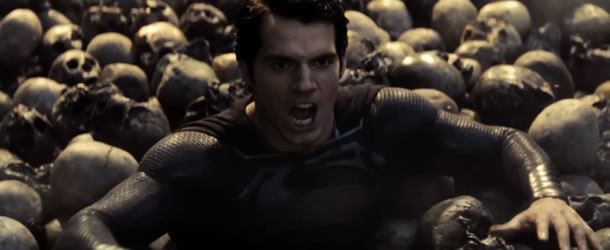DISCLAIMER: What follows are the opinions, assumptions, and experiences of a former teacher. At no point do I claim that these experiences are absolutely representative of the totality of what teaching is, or can be. Any individual teacher’s experience will depend very heavily on their school/school leaders/colleagues/personal choices.

I was both thrilled and concerned to see this article in the papers today: 5000 teachers leave service over five years.
So, because legal writing is apparently habit-forming, let’s look at some of the facts/claims before doing any analysis.
Facts, Figures, Claims
- about 3% of the total teaching force resigns every year
- with 33k or so teachers, that’s about 1000 teachers a year
- MOE claims that the teaching force is ‘stable’
- two-thirds of the teachers interviewed said that they left because of excessive administrative workloads
- MOE claims that the top three reasons for leaving were: childcare, family considerations, desire for another job
- The reasons canvassed in the report include: administrative workload, long hours, huge class sizes, overly demanding parents
- the response of the government (MP Denise Phua, MOE itself) was to look into reducing marking load and increasing pay
Some discussion points
In relation to (1):
Let’s think about who the 1000 teachers a year are, and what MOE means by ‘stable’.
Who: teachers have to go through NIE, and are usually bonded for a period from 3 to 6 years depending on what sort of funding MOE provided them. Assuming that most people would wait out their bond before quitting, this means that most of the 1000 or so are teachers with a certain degree of experience. In my experience, a teacher of 5-6 years’ experience is generally within consideration for various middle-management/leadership positions.
What: I’m assuming that when MOE says the numbers are ‘stable’, they mean that on a purely numerical basis, we’re hiring as many teachers as leave, within certain margins of error. So if 1000 teachers leave, 1000 are hired. Is that true, though? In 2015, only 800 were hired. Which is a far cry from the huge hiring drive that saw 2000-3000 teachers a year being hired back in the day. If this downward trend of hiring continues, paired with the rising trend of people leaving the service, how long are the numbers going to be stable?
Granted, we should also factor in the falling birthrate, which has seen the closing/collapsing of schools, which presumably also means that fewer teachers are going to be required to meet demand. But is that also true? Parents and teachers alike have been calling for reducing the class-size for a long time, but the closure of schools etc seems to suggest that MOE would rather maintain class-sizes and shrink the teaching force, instead of maintaining the same number of teachers which would allow for a better teacher-student ratio.
Why: And on top of all this, we have to consider that comparing 1000 experienced teachers resigning to 800+ freshly-hired teachers is an exercise of comparing apples to oranges. Or at least, apples to cider. Losing X experienced staff and gaining X inexperienced staff maintains parity only in terms of warm bodies in classrooms: it doesn’t account for the loss of experience/skill, nor the loss in terms of training and developing those experienced staffers throughout their time with MOE.
I think MOE should be closely scrutinised on this because even if it manages to calibrate exactly the right number of teachers to hire each year to make up for losses, it will nonetheless be bleeding talent/experience. It needs to focus not just on being attractive to school-leavers, but to continue being attractive to in-service staff.
In relation to (2):
Most teachers interviewed by Straits Times claim they left because of excessive admin; MOE has a counterclaim that most teachers leave because of family concerns and “desire for another job”.
What is the problem here: Either ST coincidentally interviewed a batch of former teachers whose reasons for leaving fall outside MOE’s “top three reasons”, or there’s a problem with MOE’s internal reporting mechanism that makes people say one thing to MOE and another thing to interviewers.
The latter isn’t all that bad. People are complicated and often have complicated reasons for doing significant things, such as leaving careers. It isn’t entirely inconsistent for someone to have multiple reasons for leaving the service, and to cite different ones depending on who he’s talking to.
Still, it begs the question why MOE’s apparent data on why teachers leave doesn’t seem to square with ST’s. From personal experience, I know that teachers have to go through a fairly rigorous exit-interview process before they leave, and there is a good-faith attempt by MOE to find out why you’re leaving.
Why the data might not square: I think implementation has a big role to play. Principals/management who do exit-interviews may be doing so using a standard form, but how the interview turns out really depends on the past relationship between the resigning teacher and the manager in question. I had a very good relationship (or at least, I’d like to think so) with the principal who interviewed me, and so I felt able to provide a fair and honest account of why I was leaving. I could be very open about my reasons, without concealing anything to avoid hurting her feelings, or hurting my own chances of being re-employed.
BTW, do you think that using an exit-interview to assess whether someone is suitable for re-employment might affect the quality of feedback provided at the exit-interview?
Miscellaneous: MOE actually does administer school climate surveys and so on to gauge the mood of teachers in schools. So there’s that at least. But having done my share of those surveys, here are some things I think are lacking:
- transparency: I don’t think I had access to the full accounting of the surveys for my school, nor did I have access to the national data. I would have liked it, simply to see if my responses matched those of my colleagues, and whether our responses were in line (and if not, in what way?) with the national sentiment.
- accountability: I’ve served in more than one school, and at least one of those principals was very open about what she was doing on our behalf, and I really appreciated that. That being said, it doesn’t seem to be a standard thing required of all school leaders to be seen to respond directly to the feedback provided in climate surveys, which tends to create a feeling of futility.
- ideally, what should happen is this: The school staff have collectively provided Feedback A. School leaders will openly disclose this to staff, and announce a plan for further data-collection, and then reform. “Many of you have said X. I will now commit to finding out from all of you more about X, and how X can be improved. And in Y time-frame, having collected all this information, I commit to embarking on Z in direct response to your feedback.”
- eg. “Many of you have said that you spend too much time doing admin. I will now commit to finding out more from all of you on what sort of admin you do, and how we can reduce the workload… And now, 6 months’ later, having done my research, I commit to reducing everyone’s admin workload by 20% by hiring 5 new staff to take charge of (whatever).”
- instead, what has happened in my experience is that staff get harangued for not being happy with what they have, get provided with vague assurances, and then get fed policies/practices that they didn’t ask for in response to problems they never raised.
- maybe what MOE really needs is a “response to climate survey” survey. “After the last climate survey, was your feedback disclosed? Was it properly researched? Was it properly acted-upon? How do you think your principal/HOD/cluster sup etc. could have better acted-upon your feedback?”
- Of course, we might very well iterate this to the point of absurdity.
I think MOE should be closely scrutinised on this because a teacher’s experience differs vastly based on where they teach and who they work with. Improving outcomes for teachers for the sake of improving teacher-retention means that MOE needs to take into account all possible factors for teacher-fatigue/discontent, and be able to provide alternatives. The current system is very heavily dependent on a very strict chain of command (“Your performance is evaluated by your Reporting Officer. Got any problems? Tell your Reporting Officer. What if your Reporting Officer, or HIS Reporting Officer, is the problem? Er, dunno lor. Suck thumb.”) without much alternatives. To make things worse, MOE seems to outsource a lot of its HR (at least, I assume so. I am very glad to be corrected on this issue), which seems to create additional obfuscation.
Personally, I think teachers need access to an independent third-party who can evaluate comments/criticism, like an ombudsman or a union rep. I mean, technically speaking there is a Teacher’s Union, but I’m not sure what they’ve ever done for me except organise SDU-style “meet more singles!” events that I never attended.
If such a system is already in place, I’ve never encountered it. This could very well be because my organisational awareness was super-bad (at least, that’s what my work review always said), but perhaps also because such channels weren’t advertised, or didn’t appear credible.
On a side-note, and a somewhat personal note, I’ve also observed that teachers tend to be happier when they’re teaching the subjects they signed on to teach. What’s awful is that some of them don’t. It sounds crazy that sometimes we hire teachers who’re skilled in A and then force them to devote their time to B, but it happens way more than is conscionable.
The organisation often claims expedience and exigency: essentially, that something desperately needs doing and so people get crammed into the role.
It seems odd that an organisation which often justifies its decisions to its own staff on exigent grounds seems rather publicly indifferent to the number of staff who are leaving, since one would assume that thousands of experienced teachers leaving the service would only make shortages more acute.
In relation to (3):
Resigning teachers listed their grievance as being: excessive admin workload, long hours, huge class-sizes, and unreasonable parents. MOE listed its responses as basically a whole bunch of things that had nothing to do with the grievances. Imagine you’re drowning and shouting for help, and someone throws you a fire-extinguisher.
What appears to be the problem: MOE’s announced policies to improve staff retention have nothing to do with why they’re losing staff. This is a very basic problem. It may be related to what I mentioned above about feedback not being collected in a useful/reliable manner, or it may be due to the “throw money at the problem” ethos that seems so endemic to Singapore.
Meritocracy and pay: The general assumption seems to be that talented individuals are willing to overlook any amount if dissatisfaction if you throw enough money at them. This general assumption may very well break down when applied to an industry that nobody joins for the sake of profit. When was the last time you heard anyone wanted to become a teacher to get rich? Yeah. I thought so.
Granted, some people leave teaching to become private tutors, and yes, the money is a lot better. If MOE paid me a private tutor’s rate, I would have earned something like $20,000++ a month. But what’s the causal relationship here? Do teachers become tutors because the money is better, or do they become tutors because first and foremost of better hours/job-scope/workload/satisfaction, with the higher pay being a bonus? I would wager that the latter tends to ring more true: even if I had left teaching to pursue full-time tuition, I wouldn’t have kept the same hours and earned more: instead, I would have tried to reduce my workload/improve my focus on teaching, while at the same time seeking to maintain (instead of radically increase) my income.
I’m not saying the money is bad. In fact, quite the opposite. Money was one of the least of my problems as a teacher. It was decent and reasonable. I didn’t become a teacher because I wanted to be rich. I became a teacher because I wanted to teach. What actually happened is that people kept coming to me to say, “Put some of this teaching-related stuff aside, and do this non-teaching stuff instead.”
The “admin workload problem”: In some ways, it’s real. Now, MOE tends to tell teachers that “not everything you hate is admin”, which is kinda true. If I want to bring students on a learning journey, there’s a lot of paperwork associated with it that I might hate, but at the end of the day it’s still in service of the students, and with some maturity and perspective, I grew to resent that sort of thing less. Still, what about work in service of something that you don’t believe in at all, or even worse, violently object-to?
Still, it’s a problem. I spent far more time on organisation-related tasks than student-related ones, and at around the midpoint of my teaching career, I realised (not only on my own; this message was quite strongly pushed by fellow teachers/seniors/school leaders) that my real duty wasn’t to the students as I saw it, but rather to the organisation. Ultimately, the organisation, not the students, decided how much of my work was valued. And this is a very real problem.
Teachers are fed two messages on a fairly consistent basis:
1) teaching is a vocation, and you should be doing it because it’s meaningful, and satisfying
2) the organisation decides on how much your contribution is worth.
Now, if you assume that values-alignment between organisation and staff is 1 for 1, then there’s no problem, but that much alignment in an organisation numbering 30k ++ is basically impossible. So what happens? The two messages become incoherent and mutually incompatible.
In my experience, eventually most teachers face this challenge: do I go with my gut, my heart, and my ethics, and pursue entirely intrinsic rewards? Or do I go with what my organisation tells me, and get that promotion/good performance grade/high bonus (extrinsic rewards)?
Now, those teachers who have the good fortune to be well-aligned with their schools may very well be able to either resolve this easily or skip it entirely, but I think quite a large number of us struggle with it on a daily basis.
Now, you may very well say that this is a reality of working life. If I became a banker, I would also face the choice of whether to pursue the intrinsic satisfaction of a fulfilling family life, or the extrinsic satisfaction of high pay in exchange for basically living in the office. But it’s different for teachers because we didn’t sign up for this. People who become bankers or salesman or whatever accept the profit-first self-second nature of private sector work. People become teachers because they don’t want to experience this conflict.
But yet they do anyway. Why?
“Admin workload” complaints are a symptom of the real problem — teaching as a skill isn’t given sufficient value
It has a lot to do with the message that’s sent. When someone tells you to do admin instead of working on teaching, what they’re really saying (or at least, what you subconsciously hear) is that they value your admin work more than your teaching work. I remember having to resign myself to delivering “merely OK” levels of pedagogy because I had to focus on things that I didn’t want to do, that I was bad at doing, but which the organisation said was more important than doing a good job.
This is not to say MOE says that bad teaching is OK. Instead, I got the sense that it was very important to be a decent teacher, but that beyond that, there was very little incentive to be a great teacher, as opposed to be a decent teacher + a stellar administrator. Which is kind of harsh for someone who wants to be a great teacher.
Obviously, this isn’t 100% representative of the entire service. Some schools have the student profile, the resources, and the overall mission that support teacher-excellence; some others have a genuine need for teachers to do more than teach. And of course, some people are eager to teach a broader spectrum of content, such as life-lessons and ethics, while others become teachers out of a pure love for their discipline. Perhaps what’s really lacking is an open recognition of this, and a better system for matching teacher-expectations with school-needs.
What I’d really love is to have teacher-tasks weighed on a credits system, sort of like university modules, and teachers can assemble their workloads based on what they find meaningful. Let’s say if you want to earn a basic pay of $3000, you need to sign up for 30 units worth of work. You could sign up for 20 units worth of academic teaching, and 10 units worth of CCA support, for example. Or 30 units worth of pure academic teaching. Or 15 units of PE and 15 units of community service, or whatever. And then teachers would be able to move from facility to facility. It makes very little sense to have Teacher A in School A who hates doing 6 hours of choir CCA when you have Teacher B in School B who can’t enough of it. Of course, this is all pipe-dreaming: I’m sure there are other higher-level considerations like security clearances, esprit de corps/school culture/identity and so on. But it’s a nice dream nonetheless.
All that aside, I return to my theme. Teaching — mastery of a subject, and then subsequently the ability to inspire and support students in emulating that mastery-process — is a skill that ironically seems underrated in the teaching service. On an anecdotal level, I know teachers of English who’ve had to resign from the service altogether to pursue studies in writing, or even MAs in Education. It seems inconceivable that a teacher would be forced to quit the teaching service to get better at teaching, but for many of the thousands of teachers who leave, this seems to be the case.
One of the reasons why tuition is alluring is not just because of the pay, but what the pay represents. Someone paying you $X an hour for Y hours to do nothing but teach is telling you that what you do, matters. Nobody is ever going to ask a tuition-teacher to divert his time to filling out forms or overseeing tenders for services. Nobody is going to stop a tuition-teacher in the middle of his lesson to ask him to go supervise a tennis match. That’s because his time is too valuable. The message that goes to a tutor is that “we employ and value you for this skill“. Whereas the message that many teachers receive is that “we employ and value you for your ability to teach minimally well, while also juggling an ever-changing portfolio of tasks that you may or may not have interest in”.
All this makes one of MOE’s reported fixes especially insulting. Teachers say that they wish they could focus on teaching, and MOE says that they want to reduce the marking-load. While marking isn’t fun, it’s part of teaching. I didn’t necessarily enjoy marking hundreds of essays at one shot, but I never felt that it didn’t have value. In fact, if I didn’t mark as much, how could I claim to understand my students’ competencies and weaknesses? What made marking really awful was having to mark before the holidays came, and at the same time have to plan/organise non-academic holiday activities. Why not provide teachers with a better marking environment/timeline by removing the superfluous activities?
But no, instead MOE’s response to teachers not doing enough teacher-stuff, is to remove some of the teacher-stuff they don’t mind doing. Presumably so that they can give them even more non-teaching stuff that they will hate doing.
I think MOE should be closely scrutinised on this because until teaching — pure teaching (lecturing/lesson-planning/delivering lessons/marking work/providing remedial assistance) activities — is given the pride of place it deserves, teachers who sign up to be teachers (instead of teachers-cum-counsellors-cum-paramedics-cum-sports-coaches-cum-accountants-cum-administrators-cum-saigang-party (coughelectionsdepartmentcough)) are going to feel undervalued and undercompensated for doing what they love, while at the same time being overloaded and overexploited in service of things that they didn’t (at least, not ostensibly) sign up for.
I used to be a teacher. To this day, the things I remember the most fondly, and the things I miss most about it, are the things that had to do with the students: lecturing, teaching, even marking and going over the marked work. I’m very proud of what my students have accomplished, and I feel honoured that they allowed me to be a part of their lives. Some of them still remember me, and keep in touch, and that’s a rare privilege.
To all the students I’ve ever encountered, my only regret in leaving the service was not having done more for you.














